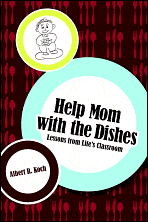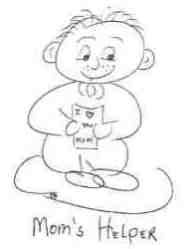My first paying job was that of paperboy in 1952. Previous employment was self-motivated, scavenging discarded soda bottles for the two-cent deposit from neighborhood alleys, and winter snow shoveling. My intent was to find a job with consistent cash flow to meet growing economic and social needs. Jobs were limited for an eleven year-old sixth-grader: too young to set pins at the Whiting Community, and lawn care jobs were sporadic. Money was scarce; I was more broke than the Ten Commandments.
Gathering my courage, I went to the Paper Store and applied. Most everyone in Whiting referred to the Whiting News Company as “The Paper Store.” Initially I met with the owner, Mr. Chrustowski and he outlined the scope of the job. Shortly thereafter, I met Mr. Serafin—everyone called him “Dutch.” He was in charge of the paperboys. Somehow, my application was accepted and I was assigned afternoon delivery for my street, Cleveland Avenue --Route 6B. The job paid $5.90 per week. Job responsibilities included delivery of The Chicago Daily News, Chicago Herald-American, and Hammond Times. In addition, we collected weekly bills, kept track of customer accounts, and kept current, the stops and starts of paper delivery. Cleveland Avenue, because of its number of customers was one of Whiting’s highest paid paper routes. All told, I had 162 afternoon papers to deliver Monday through Saturday.
During orientation, Mr. Chrustowski and Dutch emphasized the necessity of being on time, putting the paper on the porch, stoop, or steps. If delivered during inclement weather, it was our responsibility to protect the paper from adverse weather. In those days, there were no plastic bags and most porches were not enclosed. Often, the paperboy would walk up on the porch and place it in a container by the front door, or in an area where the customer could readily retrieve it. We were cautioned not to toss the paper in bushes, flowerbeds, or on porch roofs. Complaints about poor delivery or misbehavior by unhappy subscribers would be grounds for dismissal. Each paperboy was provided a canvas pouch with a large shoulder strap in which to carry papers. Fully loaded with afternoon editions and slung over one shoulder, a paperboy tilted Earth-like, about 23-1/2 degrees off plumb as he walked his route. A few of the guys had bicycles and they would balance their bag load of papers over the front fender. In a single motion, while steering the bike with one hand, they would pull a paper from the sack and accurately toss it on the porch. Because I did not own a bicycle, my main method of transporting the afternoon news was my wooden Red Flyer Wagon. Filled to capacity, I would pull the Times, Daily News, and Herald-American door-to-door. Some were two-paper clients, however, the majority of residents subscribed to just one.
As part of our “training” we reported to the back entrance of Whiting News and went downstairs. A number of tables held stacks of newspapers. Around 1:30 in the afternoon, a truck would park in front of the paper store and unload the afternoon dailies, sliding them down a chute accessed from 119th Street. Bundle after bundle slid down to the waiting arms of employees who sorted, counted and stacked papers for the various routes. When each route was prepared and marked, the paperboy would check out their allotment and take them for delivery. One of the most important tasks for every paperboy was to learn how to fold, roll, and twist the paper so it could be tossed on porches without coming apart. Dutch demonstrated the “paper boy fold”, and the older guys working the chute supervised until we had it down pat. If a paperboy chose not to pick up his papers at the paper store, they would be delivered to his house later in the afternoon. I preferred the paper store pick up because I could have my route done much sooner: usually by 3:00 pm. If I waited for the papers to be delivered to my house, I wouldn’t finish until 4:30 or so.
One fringe benefit of being paperboy is getting to know all the residents on the block. It didn’t take long for customers to greet you as you delivered their paper. Such friendliness paid dividends when collecting the weekly bill; many included a tip to help defray the cost of living. Their hometown friendliness continued, as I became an adult.
My tenure as a paperboy was short lived. When school started in September, studies, basketball and home chores took precedent. Route 6B went to another paperboy. But in that brief time, I took initial steps of independence and learned employment lessons that served me well. As boyhood gives way to adolescence; and adolescence to adulthood, additional responsibilities, commitment and priorities command attention. One develops strategies and coping skills to meet a variety of challenges: academic, social, economic and personal. Being a paperboy taught me organization, time management, responsibility, and respect. That’s pretty good for a job that paid $5.90 a week. To the Chrustowski family and Dutch Serafin—Thanks!
Subscribe to:
Post Comments (Atom)
Where's Al going to be next???
Check back soon for his next appearance at a location near you!


No comments:
Post a Comment